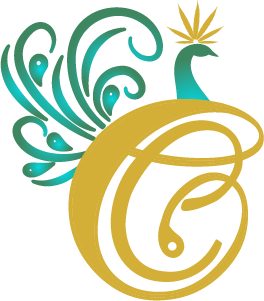Medical Cannabis

Dr. Charfen helps patients in Hawai’i with qualifying conditions use medical cannabis to reduce symptoms like pain, nausea, anxiety, and insomnia. Many have safely reduced or stopped pharmaceutical drugs under her guidance, improving their quality of life.
Cannabis can be used in various forms, including creams, tinctures, edibles, and inhalation, tailored to each patient’s needs. The “high” some worry about can be easily avoided with proper education.
Who qualifies?
Hawai’i is currently a medical cannabis use state only and not yet recreational like many other states. Therefore, in order to enter or purchase cannabis from a dispensary, one must be certified by a medical provider that they meet state qualifications.
Patients of all ages that reside in the state of Hawaii who have a valid ID and a qualifying debilitating medical condition as defined by law, which includes:
- Amyotrophic Lateral Sclerosis
- Cancer
- Glaucoma
- Lupus
- Epilepsy
- Multiple Sclerosis
- Rheumatoid Arthritis
- Positive status for human immunodeficiency virus
- Acquired immune deficiency syndrome
- Post-traumatic stress disorder
“The treatment of these conditions”, or “A chronic or debilitating disease or medical condition or its treatment that produces one or more of the following:
- Cachexia or wasting syndrome
- Severe pain
- Severe nausea
- Seizures, including those characteristics of epilepsy, or
- Severe and persistent muscle spasms, including those characteristics of multiple sclerosis or Crohn’s disease
The State of Hawaii does update the eligible debilitating medical conditions at times. For a full, updated list always be sure to check their official website.
What does medical cannabis certification allow?
- With a medical cannabis certification, you can visit a dispensary and grow up to 10 plants, which must be tagged with your registration number and expiration date.
- Patients and caregivers can jointly possess up to 4 ounces of usable cannabis.
- A caregiver is required if you are a minor or have a condition that prevents you from visiting a dispensary or growing plants.
Click here to create your free online account.
How long is the certification?
Currently, the 329 card (medical cannabis card) is good for one year from the date it is originally issued.
After the first year of certification, you can choose to renew annually or every two years.
How much does it cost to get certified?
Medical Cannabis Certification Fees
Insurance does not cover medical cannabis certification, but this may change if federal laws change.
-
First-time Patient: $200 (includes DOH application assistance).
$25 extra for document uploads.
In-person evaluation required unless you’re an established patient. -
Physician Applicant: $250 (includes full application assistance and evaluation).
Must bring ID and, if applicable, a caregiver. -
Renewal (1 year): $150
Can be done in-person or online for established patients. -
Renewal (2 years): $225
Can be done in-person or online for established patients. -
House Calls: Same fees apply, plus travel fee.
Available based on Dr. Charfen’s schedule. -
Terminally-Ill Patients: Free in North Hawai’i for hospice patients.
A small way Dr. Charfen gives back.
(GET tax of 4.9175% applies.)
State fee: $38.50 (1-year) or $77 (2-year) paid online to the DOH.
Click here to start your DOH application
What is telemedicine and can it be used to certify medical cannabis patients?
Telemedicine is an internet-based video call that allows patients in rural areas or with limited access to receive healthcare. Dr. Charfen uses a HIPAA-compliant platform for secure consultations.
While first-time certifications in Hawai’i require in-person visits, established patients can complete their certification or renewal via telemedicine from home.
For any questions or to set up a telemedicine cannabis evaluation please click here.
Make sure you use Dr. Charlotte Charfen as your provider in the state application.
Medical Cannabis Education
Dr. ChaCha's Thoughts on Medical Cannabis
Interestingly enough, it was not medical school that introduced me to the therapeutic benefits of cannabis although our own endogenous cannabinoids and receptors had been scientifically identified twelve years prior to my finishing medical school in 2000. The basic science was available, but there was no mention of cannabis as a medicine in my traditional classes.
Almost twenty years later, it was my desire to help the terminally ill and the dying, and those caring for them, that opened my mind to medical cannabis. How had I never entertained the benefits of cannabis for the dying? The opioid epidemic had already hit our country and I knew first hand all the side effects the narcotics brought with their pain-killing effects. But I thought that’s all the medicine we had. And who the hell wants to withhold painkillers while someone is dying?
I was not educated. I did not know the literature or the case studies and I certainly didn’t understand the political history that had removed an ancient healing medication from the pharmacopoeia, every doctor’s bible for pharmaceuticals. My patients again became my teachers and I vowed to educate myself.
At first, I was infuriated that healing information had been withheld and that our own government held a patent on a plant that they classified as a Schedule I drug, along with heroin and LSD. The hypocrisy and the lives imprisoned as well as lost that could have benefited from the medication was disturbing. But then it made me more determined, driving me to learn and then educate. And that is what I continue to do to this day. I am much better informed and hope to share that information with others as the science and the understanding evolves.
I also realized one important fact: the children, our veterans, and the dying are the ones to change our culture’s perspective on cannabis and its many medical benefits. They drove over 30 states to pass legislation making medical cannabis legal and numerous other states have some form of a medical cannabis bill waiting to be argued. And I dare say they have even swayed our federal government. Now I’m less infuriated and more hopeful that with this movement, the research, the science, and the legislation will catch up with what patients have been telling us for decades.
As a physician in a state where medical cannabis is legal, I still witness the ignorance among medical professionals and the general public that I once held when it comes to the benefits and the risks of medical cannabis. I certify because I truly believe everyone should have the knowledge and ability to use cannabis in holistically empowering their health, and the guidance to do so in a nonjudgmental environment.
Public Speaking for Cannabis Education
Dr. Charfen also has limited public speaking availability to educate about medical cannabis. Please inquire here.
Other Resources for Cannabis Education
Below are sites that provide additional information regarding medical cannabis.
